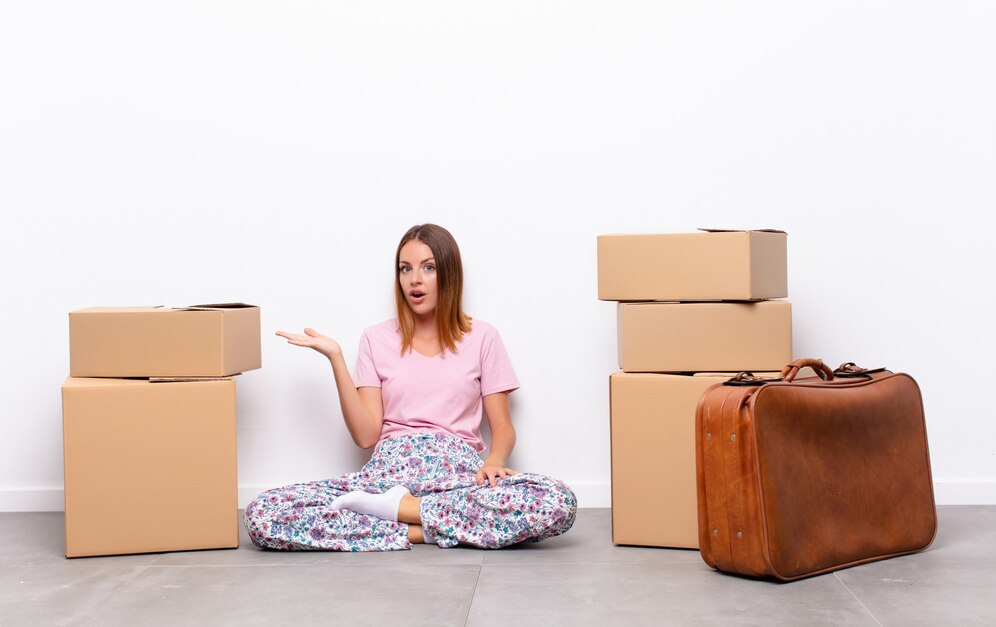Moving abroad is an exciting adventure, filled with new opportunities, cultures, and life experiences. But as thrilling as it sounds, leaving your current home, especially sorting out what to do with your belongings, can feel like a monumental task. From figuring out logistics to determining what to keep, store, or dispose of, the process can be overwhelming without a plan.
This guide will help simplify the decision-making process, offering detailed steps to organize and manage your belongings before your big move abroad.
Sorting Your Belongings
The first step to managing what you own is categorizing your belongings. This method will make it easier to decide what gets packed for the move, what gets stored, and what you can part ways with.
1. Keep Essentials
Start by identifying the items you absolutely cannot live without. Think practical, daily-use items such as clothes, medication, electronics, and important documents like your passport, visa paperwork, and medical records.
- Questions to ask yourself:
- Do I use this item regularly?
- Are there similar, easily replaceable items available in my new location?
2. Store Sentimental Items
There’s always furniture, photographs, or heirlooms that hold sentimental value but don’t make sense to take abroad. For these, consider storage solutions. Renting a storage unit in your current city or storing them with trusted friends or family is a practical option.
Pro Tip: Look for climate-controlled storage units to protect valuable or delicate items from damage.
3. Sell, Donate, or Dispose
For belongings that won’t be making the cut, you can sell, donate, or recycle them.
- Sell valuable items online through platforms like Facebook Marketplace, eBay, or Craigslist.
- Donate gently used clothes, home items, or books to charities and shelters.
- Dispose of broken or obsolete items responsibly to minimize waste.
Moving High-Value Belongings Abroad
Bringing high-value belongings such as jewelry, artwork, or rare collectibles can be stressful. Here’s how to do it without hassle.
1. Research Customs Regulations
Different countries have different regulations on what can be imported, especially for high-value items. Research the specific customs rules of your destination to avoid fines or restrictions.
2. Get Proper Insurance
Invest in international travel insurance or specialty coverage for high-value items. Companies like Allianz or World Nomads specialize in protecting valuable belongings when moving abroad.
3. Consider Professional Movers
International moving companies specialize in securely shipping high-value goods. Look into services that provide insurance, careful packaging, and door-to-door delivery tracking.
Should You Ship or Buy New?
One of the biggest dilemmas when moving abroad is whether to ship larger items or buy new ones once you arrive.
Shipping Pros and Cons
Shipping your belongings can be convenient if you want to bring furniture, bikes, or other bulkier items. However, shipping costs can add up quickly depending on weight and distance.
Pros:
- Familiar belongings feel like home.
- Sustainability—keep using what you already own rather than rebuying and creating waste.
Cons:
- Shipping delays are common.
- Costs may outweigh the value of the items.
Buying New Pros and Cons
For non-sentimental or commonly available items like appliances or home decor, buying them in your new country might be simpler.
Pros:
- Saves shipping costs.
- Opportunity to upgrade items to fit your new lifestyle or climate.
Cons:
- It requires upfront budget planning.
- Additional time is needed to shop and furnish your new home.
What About Specialty Items?
Perhaps you have specialty or niche items such as fitness equipment, musical instruments, or products linked to personal decisions like undergoing breast augmentation in Utah. It may be worth evaluating if these items are essential now or something you can repurchase or arrange to accommodate later. Prioritize based on the logistical feasibility of transport and value to your daily life abroad.
Creating a Belonging Inventory
Having an inventory of your belongings is hugely beneficial for organization and peace of mind. Here’s how to create one effectively.
1. Use Apps or Spreadsheets
Digital tools like Google Sheets or inventory apps such as Encircle help you log and categorize items digitally.
2. Document with Photos
Photograph high-value belongings. These will be useful for customs declarations, insurance claims, or storage arrangements.
3. Label Boxes Clearly
If you’re packing items for storage or shipment, label all boxes with a detailed description of their contents to make unpacking simpler.
Building a Minimalist Mindset
Moving abroad offers a unique chance to declutter and adopt a more minimalist lifestyle. Here’s how to simplify your transition and focus on essentials for a lighter, fresher start in your new home.
- Reflect on what “stuff” truly adds value and happiness to your life.
- Limit emotional attachment to material items that don’t serve a functional purpose.
- Think of this as an opportunity to rebalance convenience and comfort.
Setting Yourself Up for Success
Moving abroad can feel overwhelming, but with thoughtful planning, managing your belongings doesn’t have to be stressful. Start early, keep an organized approach, and don’t shy away from asking for help.
Focus on what’s essential to start your life abroad on the lightest, most organized note. By decluttering and staying mindful, not only will you save time and money, but also gain clarity for the exciting chapter ahead.










